-
Posts
2.457 -
Joined
-
Last visited
-
Days Won
88
Posts posted by Genava55
-
-
On 02/02/2023 at 1:53 AM, TheScroll said:
What game is this from? The details are jaw-dropping.
-
-
53 minutes ago, Stan` said:
DO you have a link to the UE4 video?
I posted it above already:
-
 2
2
-
-
1 minute ago, Lion.Kanzen said:
Ukra-nazis ,lol.
Sure...
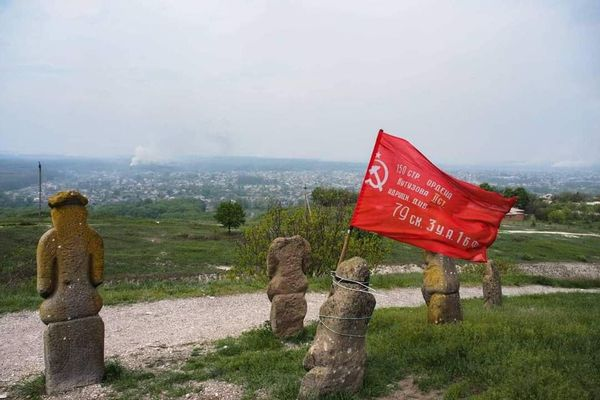
-
 1
1
-
-
On 25/11/2022 at 6:22 AM, Obskiuras said:
Those are generally called "stone babas", they are not necessarily Scythians:
http://www.encyclopediao@#$%raine.com/display.asp?linkpath=pages\S\T\StonebabaIT.htm
=> https://www.unesco.org/en/articles/damaged-cultural-sites-ukraine-verified-unesco
-
 1
1
-
 1
1
-
-
9 minutes ago, Stan` said:
Thanks @Genava55 that was pretty interesting. I still wonder how they had "millions of polygons" and still a not so good rendering.
Having a model with millions of faces is easy. I am pretty sure the issue was to have an efficient tool and a better computer to render it into a video.
The difference between the video of 2007-2010 and the video of 2021 rendered on Unreal Engine 4 is striking and I am pretty sure the original models were mostly the same.
34 minutes ago, Stan` said:Maybe someday we'll redo the gauls to be a more refined society with roof tiles and painted roofs. The contrast between civiisation and bashing animal skulls on rock and then displaying them is still crazy to me

Yes it's crazy but as they point out, it makes sense. It is practiced in Africa and Asia to display the status of the community and keep an account of sacrifices.
It is shocking for a modern man only. Sacrificing an animal is pretty difficult for us:
Futhermore, the other civilizations weren't that much elevated on the sacrifice topic.
Romans considered themselves as civilized and criticized deeply other peoples, but as Plutarch reported:
"What is the reason for the following facts: on learning that the barbarians named Bletonesioi had offered a human sacrifice to the gods, they sent a mission to punish their leaders – and nevertheless, as it appeared that they had only done to apply their laws, they were left free, not without forbidding them this practice in the future. But then how is it that the same Romans, a few years earlier, buried alive, in the square called Ox-Market, two men and two women, one Greek, the other Gallic? It seems absurd of them to have indulged in such practices themselves, while blaming the barbarians for their unholy behavior."
Romans still practiced human sacrifices in secret until 90 BC. One of such sacrifice was to burn alive a man...
-
 1
1
-
-
On 21/09/2021 at 10:52 PM, Genava55 said:
A new 3d modelling of Corent, an oppidum with a sanctuary.
@Stan` Je sais pas si ça peut t'intéresser, mais il y a une ancienne conférence de 2010 qui a été publiée sur youtube à propos de Corent, de l'interprétation du site et de sa reconstitution en 3D:
-
 1
1
-
-
-
Settlement of Le Cailar, nearby Massalia. Territory of the Saluvii/Salyes.
-
 1
1
-
-
34 minutes ago, Ultimate Aurelian said:
Are those two different versions or is the back of the building made of a different material than the front?

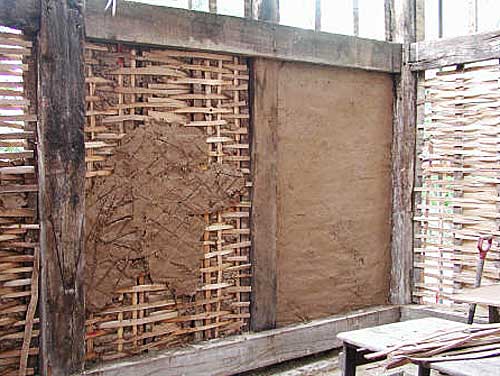
It is simply incomplete on the back (which is pretty useless).
-
 1
1
-
-
5 minutes ago, Lion.Kanzen said:
There is not much that can be done, other than making anti missile formations(shield wall). Adding missile infantry in rear and defenses.
Yes indeed. Infantrymen should have a better protection by being in a battle-formation.
Ideally, infantrymen and light infantry should have also the same speed when not in a formation. I don't understand why some peltasts with shields and helmets should be faster than unarmoured spearmen for example. Historically, heavy infantrymen moved very fast when they broke out of their formation. It is staying in a cohesive formation that make them slower.
By giving more importance to the heavy infantry and to formation, it gives more incentive to micro-manage them.
Cavalry should have a bonus against infantry not in formation.
-
 3
3
-
-
12 minutes ago, wowgetoffyourcellphone said:
Citizen Soldiers are a real double-edged sword for this game.
Because historically the main force was the heavy infantry and there was no hard counter against it.
Harassing with ranging units like did Iphicrates at Lechaeum or like did Surena at Carrhea was quite difficult and long. Very inefficient process, taking far longer than a normal engagement. This is basically what every players are trying to do in AoE games by micromanaging their ranged units. It is working besides the hard counter system.
In ancient times, the cavalry and the ranged troops were generally used against their opposite to gain the upper hand and to support their own infantry. To win a battle, the most important was to route the enemy's infantry by crushing its morale, but it generally happens when they are in close combat. Cavalry and light troops are rarely enough by themselves.
-
 2
2
-
-
58 minutes ago, Lion.Kanzen said:
From a general perspective, every civ/faction/culture could have at least those:

Even if we currently don't give to every civ bowmen and swordsmen, in reality there are evidences for swords and bows in every cultures.
-
On 16/03/2023 at 10:28 AM, Duileoga said:
Qué opinan
Very nice! Well done. It looks really unique. I like your main texture, the inspiration from the tomb is a good idea.
-
 1
1
-
-
-
-
-
-
-
26 minutes ago, wowgetoffyourcellphone said:
Lol true. I was mainly referring to unit types though.
It is better to have a good diversity and a better accuracy in total war games.
Edit: this is what the players want and it is better to balance the factions.
-
2 hours ago, wowgetoffyourcellphone said:
They just threw everything in there huh? Lol
yeah, the threshold of 100 factions will be crossed before summer I think lol
-
-
On 06/03/2023 at 1:13 PM, MardukAmmon said:
Hi! I am graduated in ancient history and I have suggestion for a dark age mod for 0 a.d.
First the ideal mod going do the mid VII bc till the end of VI bc.
for the forge I suggest the brit forge for phase I and spartan forge for the Phase III and the same for the barracks for the mounted units.
I don't want to create new assed but use the already created assets that are used in this game!
I can't do by my self, it is only a suggestion for depict an ancient moment of greek history
Civil centre, I used for the first phase the brit civil centre because during the iron age greek used wood houses and palace, but in the beginning of the VI they start to use stone and clay roof. So I chose brit civil centre in the phase I and spartan syssition in the III phase.
For the temple i used the same theory, I chose for the phase I the gaul civil centre because resamble the shape of the famous Argos's first temple made by woods, for the Phase III I chose the spartan temple because has the shape of archaic stone greek temple.
For the defense walls I chose for the phase I the brits wals and for the phase II the kushite, and fort the phase III I suggest the use of spartan defense walls and dors.
For the house I suggest for the phase I the brit house, Phase II iberian and Phase III spartan
For the noble heavy unit i suggest this units. The noble spears used corinthian helmet form champion spearmens spartan, illyrian helmet from spartan sword man, and helmet form middle level spartan hoplite. For the shield they use spartan champion shield, champion swordman shield and macedon champion shield, I think that shield of the lambda (middle level spartan) is anachronistic for archaic greece .
For the leavy spearman i suggest the spartan javellin skin with iphicrates pelt shield
For the Chivalry I suggest for skirmish unit the spartan javellin on a horse, and for mele I suggest noble spears on a horseback like founded on Archaic bronze noble statues
-


.thumb.jpg.b21ca1d0c15fb56b42c39b25a0a40815.jpg)
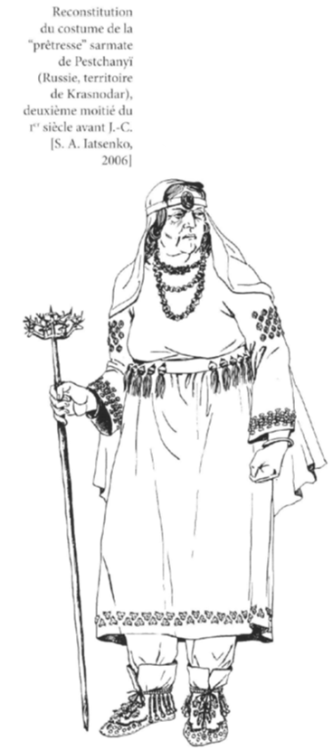
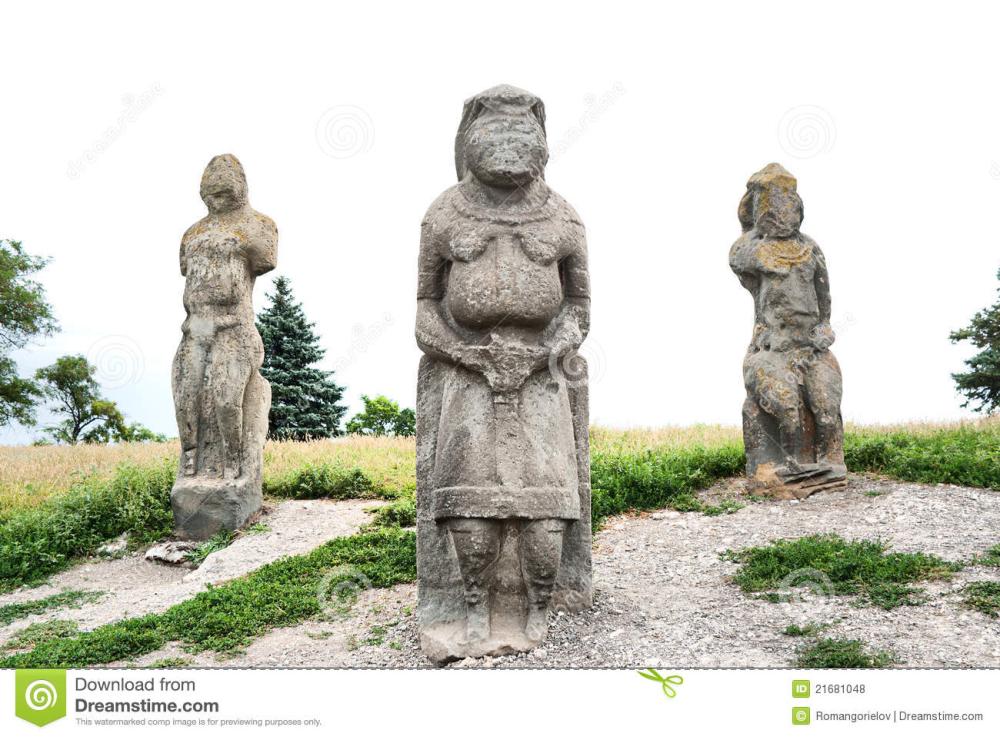
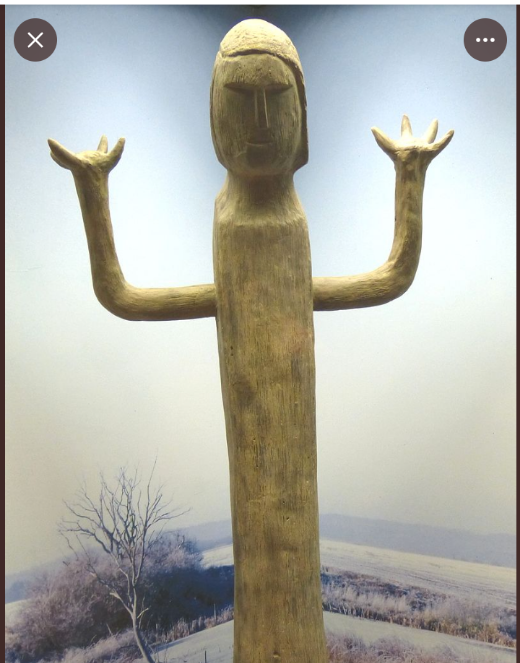
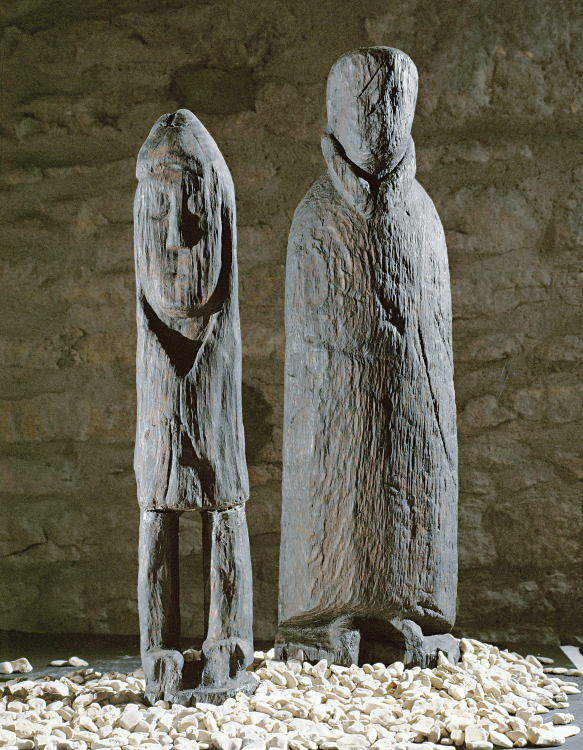

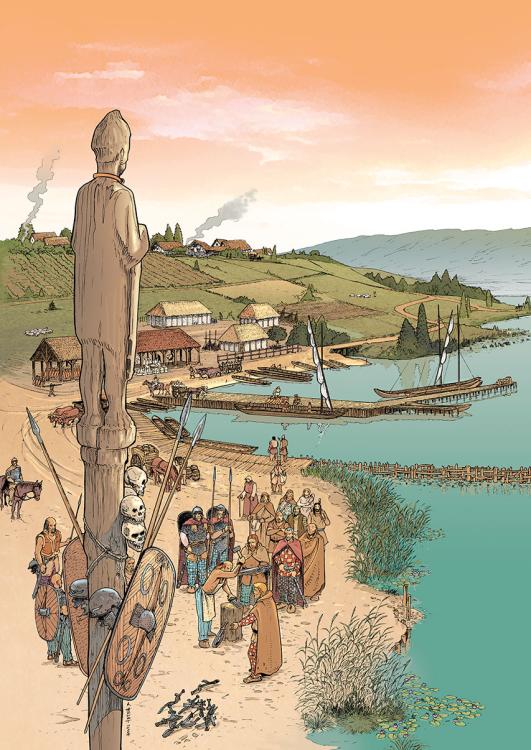

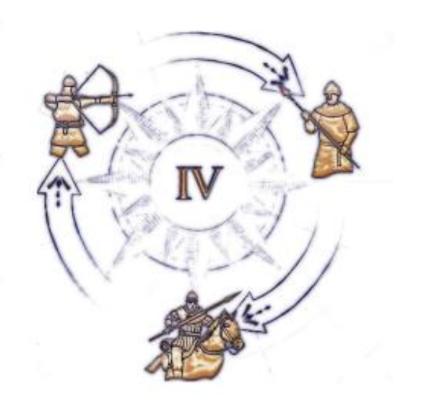
Civ: Scythians
in Delenda Est
Posted
https://www.artstation.com/artwork/rJJoeE